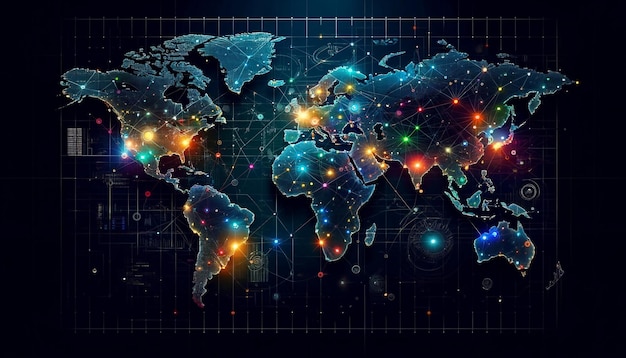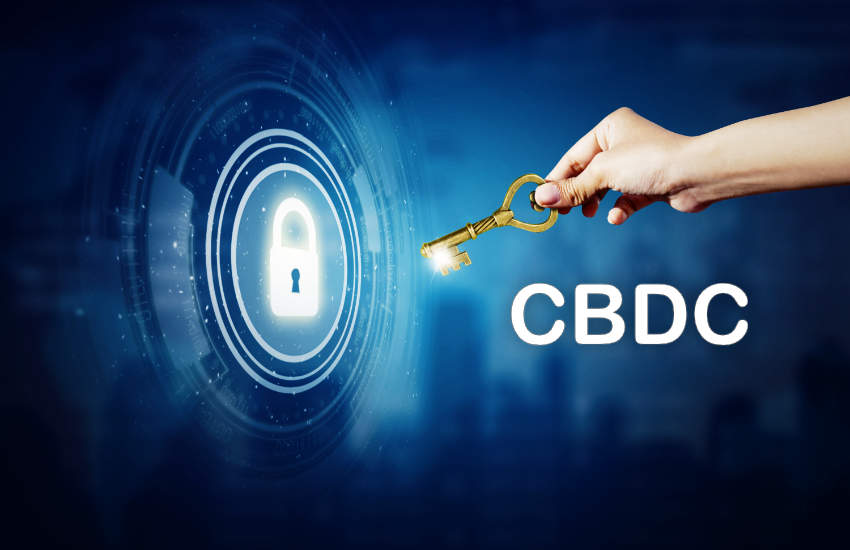Let’s be honest — most people still think “digital surveillance” means some hacker in a hoodie watching them through a webcam. Cute idea, but no. What’s actually happening is way bigger, way more organized, and — scary as it sounds — way more legal. Governments all over the world are slowly weaving together a global digital surveillance grid, one polite policy and “safety feature” at a time.
And here’s the kicker: we’re the ones helping them build it.
The Subtle Shift from Freedom to Monitoring
It didn’t happen overnight. First, it was “for security.” After 9/11, people were willing to give up a few freedoms in exchange for protection. Surveillance cameras went up everywhere. Phones started tracking “for our safety.” Then came data retention laws, social media profiling, and predictive policing.
And we all nodded. “If you’ve got nothing to hide, you’ve got nothing to fear,” right? (That phrase has aged terribly, by the way.)
Fast forward to now — 2025 — and entire nations are connecting banking systems, health records, travel histories, and even social media accounts to centralized digital ID systems. The same ones they promised were “voluntary.” Funny enough, that “voluntary” option quickly turns into “mandatory if you want to live normally.”
Digital IDs: The Trojan Horse of Control
Here’s where the story takes a darker turn. The Digital ID — pitched as a modern convenience — is quietly becoming the universal key that unlocks (or locks) your participation in society.
Want to travel? Show your Digital ID.
Want to access healthcare? Digital ID.
Want to get your tax refund, open a bank account, or even pay your bills online? You guessed it — Digital ID.
Now, I’m not saying all digital systems are bad. Convenience is nice. No one wants to carry 14 cards around like it’s 2003. But when convenience replaces privacy, you end up with control — and not the kind you have.
In India, for instance, the Aadhaar system links fingerprints, iris scans, and personal data to nearly every service imaginable. In China, their social credit system connects IDs to online behavior, spending habits, and even who you associate with. One wrong move — a post the algorithm doesn’t like, a fine you didn’t pay — and suddenly your access to travel or financial services vanishes.
Sound extreme? It’s not just “over there.” Canada, the EU, and even the U.S. are pushing similar frameworks. They call it “digital trust,” but it’s really digital dependence.
The “It’s for Your Safety” Excuse
Every generation gets a new version of this excuse. Cameras on every corner? Safety. Internet censorship? Safety. Tracking devices in cars? Safety.
It’s like the ultimate political cheat code — just add “for your safety” at the end, and boom, you’ve got compliance.
Remember during the pandemic when certain countries used apps to track your movement, check vaccination status, or restrict travel? Those tools didn’t disappear. They just… evolved. The infrastructure is still there, now being rebranded as digital identity systems “for your convenience.”
(Convenience has become the softest word for control in the English language.)
But Who’s Really Behind It?
Governments are the front-facing players, sure, but the real power often sits in partnerships with private tech giants — companies that already own our data. Think about it: Google tracks your searches, Meta tracks your social life, Apple tracks your location, and your bank tracks your spending.
Now imagine all those data streams merging under a single digital identity.
It’s like giving every Big Brother in the world one shared brain.
And the language they use to sell it is pure PR genius — “frictionless identity,” “seamless authentication,” “digital empowerment.” (That last one always makes me laugh. Empowerment through monitoring. That’s new.)
The Illusion of Consent
They won’t force it all at once. That’s not how modern control works anymore. Instead, they use incentives and gradual dependency.
First, they make it optional. “You don’t need a Digital ID, but it’ll make life easier.” Then they connect more essential services to it until, one day, you realize you can’t do much without it.
That’s how the grid builds itself — not through brute force, but through quiet design.
I remember reading about a small business owner in the EU who couldn’t renew his business license without registering for a digital ID platform linked to a centralized EU database. He said it felt like “being logged into society.” Creepy, but accurate.
The Future of “You” Is a File
Here’s the part that keeps me up sometimes: the future version of you — your “digital twin” — might be more important than the real you. It’ll hold your data, your interactions, your permissions. In a world where algorithms make decisions about loans, travel, and even hiring, that digital version is your reputation.
But what happens when it’s wrong? When an error flags you as suspicious, or when some AI decides your behavior doesn’t “align” with acceptable norms? You can’t appeal to a machine. You can’t argue with code.
We’re building a world where algorithmic truth replaces human judgment — and that should terrify everyone.
So What Can People Do?
Honestly, awareness is the first step. Don’t just shrug it off because it sounds “too big.” All global systems start with local acceptance.
-
Ask questions when governments or banks push new digital ID programs.
-
Support platforms that protect privacy and transparency.
-
Push back against centralized control — whether it’s in tech, media, or finance.
-
And most importantly, keep talking about it. The more light we shine on these systems, the harder it becomes for them to expand in the dark.
I get it — resisting feels exhausting sometimes. But if we don’t question this stuff now, we might wake up one day in a society where freedom is nothing more than an old slogan printed on your outdated passport.
Because once the digital trap closes, it doesn’t reopen easily.
Verified and Unique Sources
-
Open Government Partnership – “Navigating the Risks and Rewards of Digital ID Systems”
Explores how digital identity programs can easily slide into surveillance if not properly governed.
🔗 https://www.opengovpartnership.org/stories/navigating-the-risks-and-rewards-of-digital-id-systems/ -
Electronic Frontier Foundation – “The Problems with Digital IDs”
The EFF breaks down the privacy and data ownership risks hidden behind digital identity systems.
🔗 https://www.eff.org/deeplinks/2024/05/problems-digital-ids -
Brookings Institution – “Principles for Designing Reliable Digital ID Systems”
A think-tank perspective showing both the potential and the ethical minefields of digital identification.
🔗 https://www.brookings.edu/articles/principles-for-designing-reliable-digital-id-systems/ -
The Guardian – “Digital ID schemes risk creating ‘surveillance societies,’ experts warn”
Covers privacy experts warning that centralized IDs could create long-term social control structures.
🔗 https://www.theguardian.com/technology/2023/nov/12/digital-id-schemes-risk-surveillance-societies-experts-warn -
Le Monde (International Edition) – “In China, a New Digital Identity Has Increased the Government’s Control Over Citizens”
An example of how a digital ID rollout directly enhanced state surveillance powers.
🔗 https://www.lemonde.fr/en/international/article/2025/07/18/in-china-a-new-digital-identity-has-increased-the-government-s-control-over-citizens-online-activities_6743473_4.html -
Wired – “How Your Digital Identity Could Be Used Against You”
Examines the blending of AI, facial recognition, and ID systems to profile and restrict citizens.
🔗 https://www.wired.com/story/digital-identity-privacy-surveillance/ -
ACLU – “Digital Identity Leaders and Privacy Experts Sound the Alarm on Invasive ID Systems”
Civil liberties advocates call out the creeping normalization of mass identification programs.
🔗 https://www.aclu.org/press-releases/digital-identity-leaders-and-privacy-experts-sound-the-alarm-on-invasive-id-systems -
World Economic Forum – “The Future of Digital Identity: Inclusive, Secure, and Portable”
Provides insight into how major global institutions envision linking financial and social systems through IDs.
🔗 https://www.weforum.org/agenda/2022/10/future-of-digital-identity/ -
TechPolicy Press – “Lessons from National Digital ID Systems for Privacy, Security and Trust in the AI Age”
Details how data misuse and overreach emerge in national identity deployments.
🔗 https://techpolicy.press/lessons-from-national-digital-id-systems-for-privacy-security-and-trust-in-the-ai-age -
MIT Technology Review – “Digital IDs Are Coming — But at What Cost to Privacy?”
Balanced but revealing look at how governments are testing IDs that could easily enable total monitoring.
🔗 https://www.technologyreview.com/2024/09/21/digital-ids-coming-cost-privacy/











Yikes. wow you are a rock star for awareness perception and comprehensive article on that. Many people are too busy and have little time for inconvenience. look at people doing financial transactions with their phone, zero bank card, zero cash, all code. good luck trying to convince people about that, some are aware and already have exited the system as much as possible. hopefully you can continue to remind people and build on that with current developments, people need a plan and work on it, being actively aware and noticing things simply by observation is essential, you really hit the nail on the head with so many relevant points. less smart meters, less smart phone, less smart tv, they represent spy n crime, technocracy, (not too mention radio-frequency poisoning, mind control, mood influence, brainwave pattern influence, health hazards, blue screen tv especially bad for the eyes etc) traitors to your heart and soul, along with all the dumbass siri, google, alexa etc on star is as bad or worse, incredible surveillance right now, and it is being weaponized with the pre-emptive intel profile strike package…phones are listening all the time, you cannot have a private conversation with that crap around
That’s a really thoughtful and well-rounded perspective — and you’re right, convenience has become the biggest hook of all. Most people don’t even realize how deeply integrated this tech has become in their daily lives until you point it out. The challenge is getting people to care before it’s too late, especially when the systems are designed for comfort and ease.
Do you think there’s a real tipping point coming where people will finally start opting out in larger numbers?